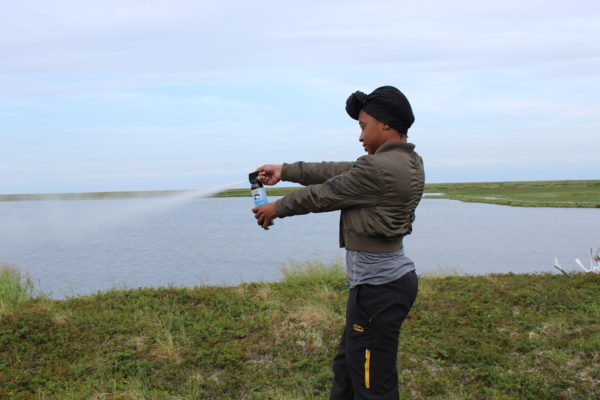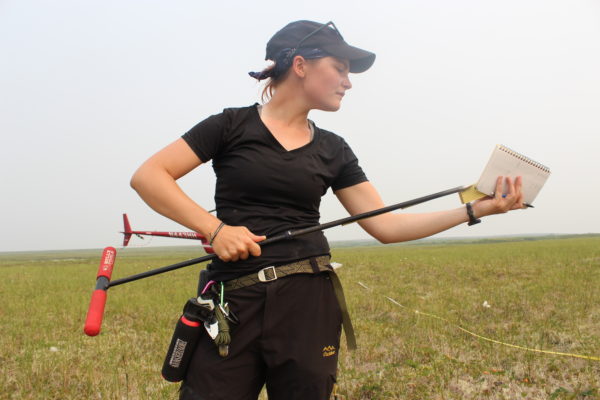Some may wonder what our daily activities are here in Cherskiy, Northeast Siberia. Besides the normal breakfast at 9, lunch at 2 and dinner at 9, we spend much of the day in the field, followed by preparing and filtering samples in the lab. But what is hard to imagine for those who have not been to the Northeast Science Station before are the details of our days, the small mishaps, the daily jokes, and the triumphant feeling of obtaining great data. While we work long days, we love what we do, and we inspire each other to keep pursuing our goals, our dreams, and our ambitions.
The four of us have difference specialties, experiences, and projects. But we always plan our days around each other in order to make the best use of our time here. Many of our interests overlap, so we plan our day ahead of time to make sure we are getting done all that we can. For example, when Elise wants to sample a stream or lake for methane, we use the opportunity to take an aquatic survey for broad analysis to benefit the Polaris database. Another example is that Claire is interested in optics, of which I share an interest especially on lakes, so we share data and discuss our findings. When I am doing my lake analysis I generally take an aquatic survey sample, an isotope sample for Jorien, or even a methane sample to help Elise. No matter what we do, where we go, we find ways to help each other.
What I am trying to say is that the great thing about our group is collaboration. No matter what we are trying to accomplish, we collaborate, and that is truly the great thing about the type of work that we are doing. If one of us has a problem, we sit down and discuss as a group and come up with a best solution. We are not only smarter, but stronger and able to accomplish more when we are working together.
In the past few days we have accomplished a great deal, numerous aquatic surveys that benefit the Polaris database, methane capture, isotope samples, carbon measurements, lake bottom mapping, and feeding the hungry Siberian mosquitoes. Much of our time here so far has been proving our methods for our individual projects, and fixing issues as they arise. Nothing in science is expected to always go smoothly, but with the combination of all of our skills, the help of those who run the Northeast Science Station, and the assistance of those back home, we have accomplished, and will accomplish, what we came here to do, and more.




Sue Natali says
June 21, 2013 at 4:54 pmSo great to follow what’s going on in Cherskiy. I’m glad to hear the early season campaign is going strong. I couldn’t agree with you more–I think the collaborative nature of the Polaris participants is one of the projects many great strengths. In addition to increasing field productivity, this high level of collaboration provides a more integrated understanding of the arctic system as a whole and makes field work a lot more fun!